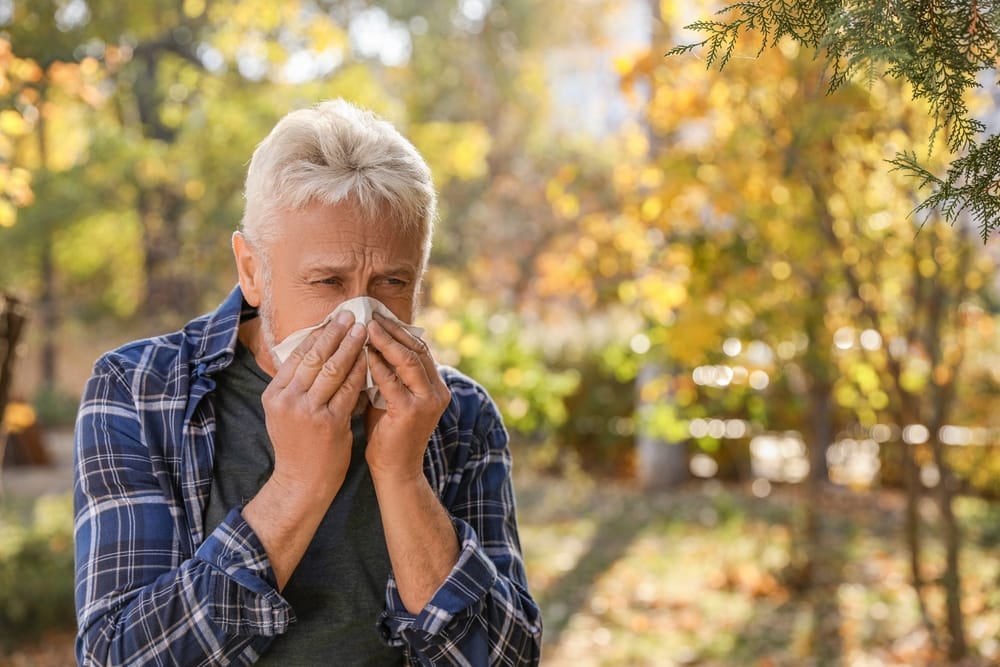
If there’s one thing North Texas is known for, it’s the radical changes in weather. For children and adults living with asthma in the area, those sometimes sudden changes can cause similarly sudden changes to daily lives, disrupting routines and bringing about health challenges. But there’s no need to fear these shifts when you’re aware of how changes in North Texas weather can affect asthma symptoms, and when you’re ready with a plan of action—and a good allergist to help you along the way.
How North Texas Weather Changes Affect Asthma Symptoms
North Texans with asthma know that a number of irritants can cause a flare-up in their symptoms, changing their breathing patterns or at the worst, triggering an asthma attack. But the weather itself can bring on or exacerbate symptoms too. However, there’s no need to worry when you remember how to recognize and manage childhood (or adult) asthma symptoms, and follow your asthma action plan. Keep in mind, this is preparatory and readiness information.
Season Changes
The transition from season to season can be an especially challenging time for allergy sufferers. Colder weather, with its dry air, can irritate the airways and cause coughing and wheezing. Then there are the volatile North Texas spring and summer storms. These bring changes in barometric pressure and increased humidity, which can activate chest tightness or shortness of breath. Summer’s high heat triggers various asthma symptoms too, and with children especially active during this time, it’s important to regularly monitor the forecast.
Air Quality in Warmer Months
Studies have shown that ground-level ozone has a profound impact on air quality in Texas, thus affecting the ability of many asthma (and allergy) sufferers to breathe normally. Ozone forms in high concentrations on warmer, sunny, low-wind days with lower humidity. These days also show increased particulate matter, which tend to carry asthma irritants.
Ozone Action Day forecasts are given from March 1 – November 30 throughout the state, as part of air quality updates. Following this information can help you better plan weekly activities, and know when to make sure prescriptions are filled and available.
North Texas Allergy Seasons
As anyone with allergies can tell you, allergy season seems perpetual in the North Texas area. Allergic asthma sufferers in Texas are extremely familiar with the various environmental allergens and irritants that can set off their symptoms. In addition to pet dander and dust mites inside the home, as we are soon entering fall, ragweed will also be in the air.
Ragweed is a top allergen that causes spikes in allergic asthma symptoms. And there are many other allergens out there that grow based on the weather and temperature, causing similar effects. The great news is that no matter the type of asthma, there are multiple treatment options available, from simple avoidance to medications and desensitization therapies.
As you can see, a number of weather-related items can impact asthma symptoms. But by following your asthma action plan and communicating with those closest to you or your child ahead of time, you will be ready. If this information provided insight into undiagnosed symptoms you’ve experienced, seek allergy, asthma and spirometry testing from a trusted local board-certified allergist to get help. Everyone deserves to breathe a little easier.
Get Expert Asthma Care From North Texas’ Preferred Allergist
Individuals and families in McKinney/Prosper and Southlake have sought asthma and allergy treatment at TexasAllergyMD for the welcoming atmosphere and long-lasting remedies. Dr. Mireku and team are committed to helping you breathe and live well, no matter what the North Texas weather does. Call us today at (469) 375-1525 or request an appointment now.











